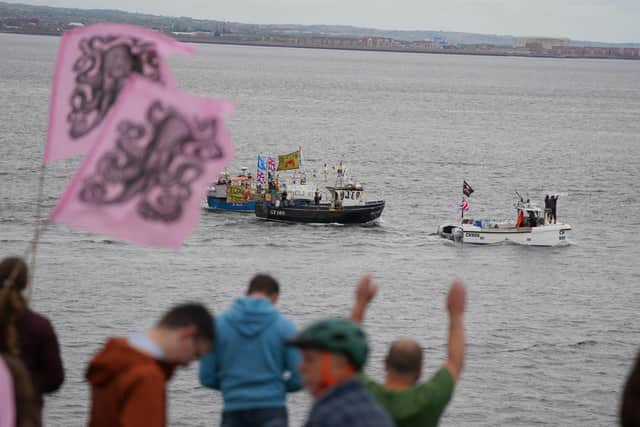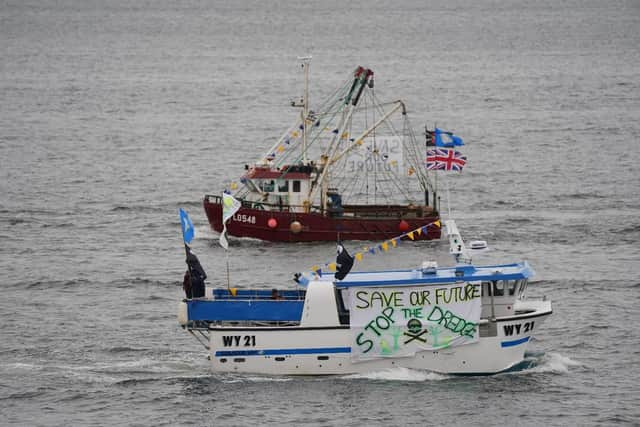'Terrified' fishermen fear the start of an 'extinction episode' in the North Sea due to Teesside dredging and crab deaths
and live on Freeview channel 276
A mass die-off last year saw hundreds of dead crabs wash up on beaches around Teesside, prompting a probe by the Environment Agency.
The Government’s Department for Environment, Food and Rural Affairs (Defra), later blamed the incident on a naturally occurring harmful algal bloom.
Advertisement
Hide AdAdvertisement
Hide AdBut others have cast doubt on this, instead blaming industrial toxins, including pyridine, potentially unleashed by dredging in the waters around the mouth of the River Tees.


And addressing the House of Commons Environment, Food and Rural Affairs Select Committee on Tuesday (October 25), Hartlepool campaigner Stan Rennie claimed ministers had dragged their feet responding to the crisis, which it is feared could devastate the North East’s fishing industry.
He added he had seen an “absolutely devastating” 58% reduction in income and has had to double his working days, traveling a further 90 minutes per day to get out of the die-off zone in search of fish he considered safe to sell and eat.
David McCandless, chief officer at the North Eastern Inshore and Fishing Conservation Authority (NIFCA) said that lobster catch levels were “reasonably encouraging” but that crabs were at least 50% down and in some areas they could be 90% down.


Advertisement
Hide AdAdvertisement
Hide AdBut Mr Rennie called the findings misleading, claiming instead lobster catches were down 50%, undersized lobsters and pregnant lobsters were down 75% and velvet crabs and brown crabs were down 100% and pointed to that start of an “extinction episode” in the North Sea.
Teesworks started dredging in September this year and is currently depositing the sediment on land, but is expected to begin disposing at sea next year.
The committee also heard from Dr Gary Caldwell who was commissioned by the North East Fishing Collective to study the the mass die-offs, concluding “pyridine in seawater is highly toxic to crabs even at low levels, causing severe twitching, followed by a state of paralysis lasting 20 - 30 minutes, followed by death within six hours.
PD Ports’ director Jerry Hopkinson told MPs another dredging machine had been brought in after due to delays and had dredged 150,000 tonnes in just ten days – a job which would usually take 20 to 30 days.
Advertisement
Hide AdAdvertisement
Hide AdDr Caldwell suggested this could have disrupted a “pyridine reservoir” and called for a temporary moratorium on capital dredging for more investigations.
Mr Hopkinson responded: “It’s coincidental that the dredger arrived when these crustacean mortalities occurred.
“Frankly I think we are looking in the wrong direction.
“This type of relatively intense dredging was not a one-off occurrence, we will have done this many times over the last 40-50 years.”
Rachel Hartnell, science director at the Centre for Environment, Fisheries and Aquaculture Science (CEFAS) claimed satellite data and testing showed evidence to support an algal bloom being behind the deaths.
Advertisement
Hide AdAdvertisement
Hide AdA spokesperson for South Tees Development Corporation said: “We continue to follow all legal standards and requirements as is required, including the issued licence and guidance from DEFRA and MMO, who continue to rule out dredging as a likely cause.
"The Tees Valley Mayor continues to push Government for financial support those fishermen whose livelihoods have been affected by this issue.”
